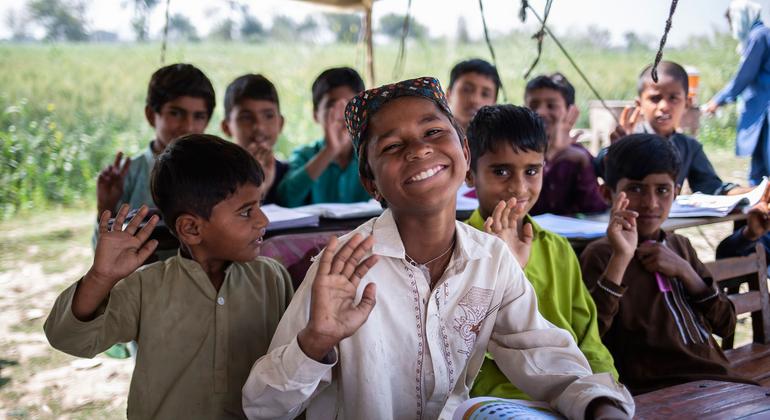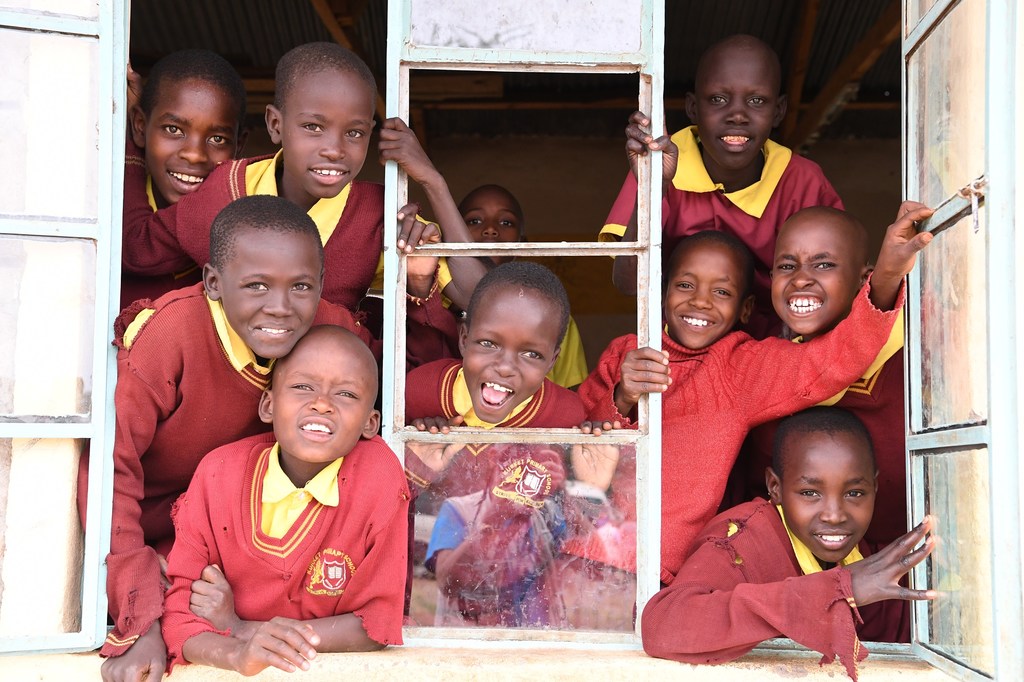$1.5 billion commitment for education and skills training in lower-middle-income countries
 A new $1.5 billion investment, announced on Thursday, will boost education and skills development for millions of the world’s children and youth most in need.
A new $1.5 billion investment, announced on Thursday, will boost education and skills development for millions of the world’s children and youth most in need.
The commitment by the International Finance Facility for Education (IFFEd) will address the dire but often forgotten global education emergency. Currently, 250 million children do not attend school while more than 800 million young people – more than half of the world’s youth – will leave school without any skills for the modern workforce.
It will also help bridge the enormous education funding gap, pegged at some $97 billion annually through to 2030.
A historic investment
The commitment, which covers the period through 2025, represents “the largest one-off investment in global education and skills in decades,” said UN Special Envoy for Global Education Gordon Brown, who spearheaded IFFEd’s development.
The public-private, non-partisan international finance facility specifically focuses on education financing for lower-middle-income countries (LMICs), home to 1.2 billion children and young people, or nearly half the global total.
LMICs – which include India, Pakistan, Nigeria and Kenya – are caught in the so-called “missing middle”. These nations are no longer able eligible to receive grants, but non-concessional financing remains unaffordable, while limited domestic resources mean education and skills skills are often hit the hardest.
Soundcloud
‘Innovative financing at its best’
IFFEd turbocharges the financing power of multilateral development banks (MDBs) by leveraging a mix of grants and sovereign guarantees in a new way to increase funding for human capital development.
Every one dollar in donor cash will deliver $7 in education and skills financing at the country level. As a result, LMICs will be able to prioritise investment in these two areas, even in the face of competing needs for climate, health, and infrastructure.
Mr. Brown called the $1.5 billion commitment “innovative finance at its best”, saying that “aligning guarantees with grants and loans offers a way ahead to maximise resources for international development generally.”
He called for “governments and private partners to join IFFEd’s financing innovation that turns millions into billions to unlock opportunity for the world’s children and youth who need it most.”

© UNICEF/Frank Dejongh
Happy students in a school in the Maasai community in the Kajiado County, in Kenya.
Transforming millions of lives
IFFEd’s founding donors Canada, Sweden, and the United Kingdom have committed $342 million in guarantees and paid-in capital, plus $100m in grants.
Several global philanthropic foundations have provided critical seed funding, including the Atlassian Foundation, Jacobs Foundation, Porticus, The Rockefeller Foundation, and the Soros Economic Development Fund (the impact investment arm of Open Society Foundations).
“Inspired by Gordon Brown’s vision I am delighted that we have now reached the point that we can bring positive change to the life chances of millions of children and young people worldwide,” said IFFEd’s Board Chair Sir Julian Smith.
“We look forward to working with our first MDB partner, the Asian Development Bank, to begin our programme of delivery.”
Meanwhile, 10 countries in the Asia-Pacific region have been approved as eligible for IFFEd financing: Bangladesh, India, Mongolia, Pakistan, Papua New Guinea, Philippines, Sri Lanka, Timor-Leste, Uzbekistan, and Vietnam.
IFFEd is also actively engaged in conversations with additional donors and other MDBs including the World Bank and the African Development Bank.



